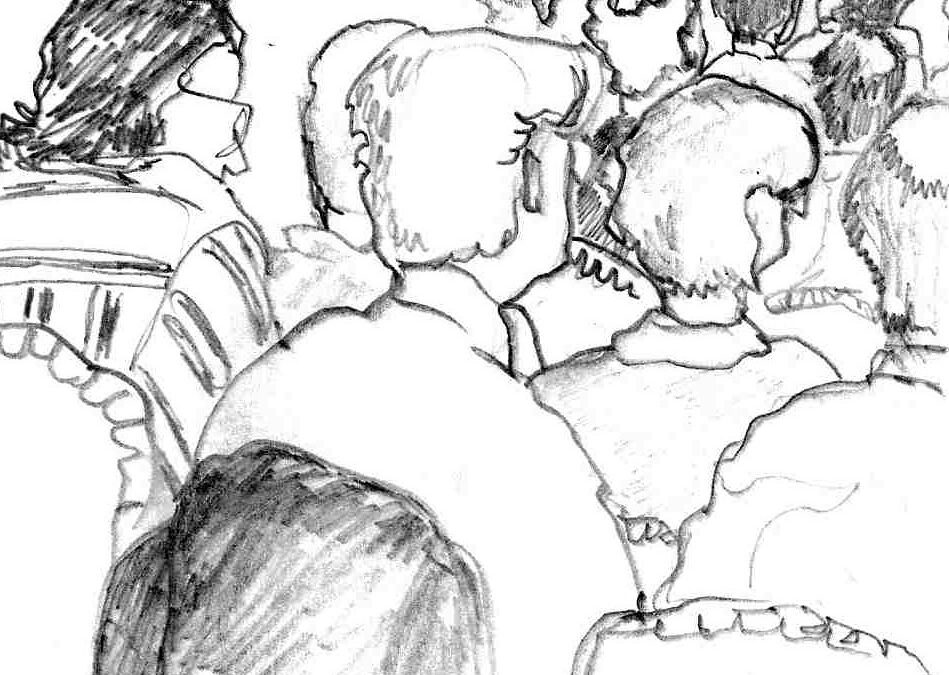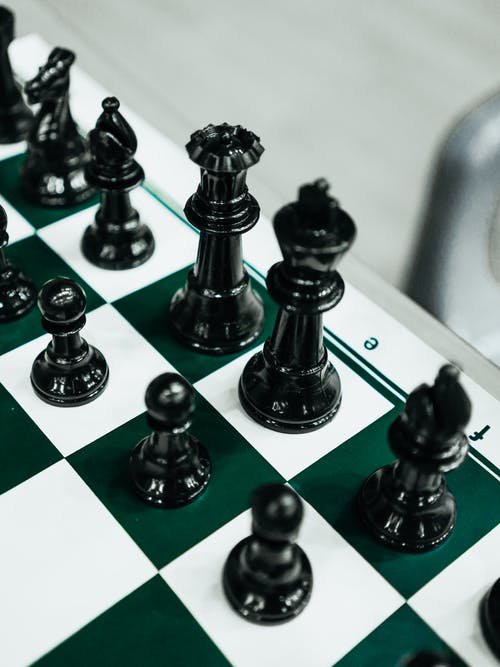


Impact: Retirement Strategy #8
Chuck, a retired physician, tutors school age immigrants in English. Pam watches her young grandchildren while her daughter works. Jack, a retired attorney, spearheads an effort to register voters and get out the vote. At the local library Bob, a retired pharmacist, counsels individuals on the interactions of the multiple drugs they are taking. Joel, a retired attorney, volunteers for legal aid and tutors young students are growing up in challenging environments.
I am inspired by these people. As I thought about my own retirement, I knew that I wanted to do something important. Creating a career in retirement coaching was one activity I chose, but I aspired to do more. I wanted to use my skills and strengths in whatever I chose to do to help others,
I became excited about the possibilities when I heard the story of Summit Academy, a vocational school in Minneapolis servicing those most in need. They have a GED program for high-school non-completers to get a diploma. And they teach the skills needed for low (or no) income people to get entry-level jobs in construction, health care, and IT areas, three areas in high demand. They have arranged for many employers around town to provide internships and jobs for their graduates.
When I heard this story, I began to wonder what their lives will be like when they finished the program. Some of the graduates may not have much experience handling money, and they might not make good decisions about it.
I realized that I had a lot of skills and experience to offer. I’m very experienced with money – both personally and professionally. And I love to teach – particularly if my students get inspired and do things differently and better. Here was a possibility almost perfectly made for me, where I could have a big impact on the lives of others.
I taught my first classes, on Zoom, to three cohorts of IT students at Summit Academy last week. I don’t know where this will lead. But I’m excited and hopeful. My retirement is enriched by this opportunity.
How can you get involved to have an impact on the lives of others?

Planning: Retirement Strategy #7
There is a common notion that retirement planning is all about the money. That view is only half of the story. The other half is about planning your retirement activities so that you have a high-quality retirement life.
I’ve been constantly surprised about how retirement is turning out in both of those dimensions – the money and the activities.
The money part of retirement planning focuses on saving and growing the savings so that there will be enough money to live off when you stop working. When retirement arrives, you reconfigure your investments to provide a retirement income.
I too have done that planning, and I’ve counseled my financial planning clients to plan in similar ways. Probably my biggest surprise was the miracle of compound growth. Einstein identified it as one of mankind’s greatest inventions. I knew it in theory, but the experience felt like a miracle. My investments started out on a small scale when I was in my 20’s. I stuck with it and watched my money grow into something quite substantial.
Now I’m taking a retirement income. In just the first 1½ years of retirement, I’ve witnessed considerable fluctuations in the value of my investments, much more than I’d anticipated. When Covid 19 hit, values plummeted, then recovered, and are now at all-time highs. At the same time much of my spending changed. It came to a halt because of travel restrictions and quarantines. I anticipate that there can and will be many unpredictable changes in the future. I continue to plan but will adapt my spending as needed.
There is the famous expression – Man plans, and God laughs. But where would I be now if I hadn’t planned my savings earlier?
The other half of retirement planning is about the quality of activities. It addresses lifestyle and goals.
I had planned a retirement life of speaking, hobbies, and service to others. I retired on January 1, 2020, just a few months before Covid 19 happened. Things didn’t go as planned, so I had to make many adjustments to my retirement activities.
This evolution of my retirement activities has also been surprising to me. My first reaction was to notice all of the activities that I couldn’t do. But if anything, my retirement activities have already evolved into a much better lifestyle than I had anticipated. My planning gave me the start and direction. Without it, I know that I would have floundered. As circumstances changed and opportunities arose, I reevaluated and modified my plans.
In my retirement I have much more control over my activities, time and other resources than I had before. I anticipate further changes in the world and in my own situation. I expect to modify my plans as needed. My goal is to continue to explore, grow and contribute as I age.
What can you do to improve the quality of your retirement activities?

Connections: Retirement Strategy #6
Being connected with others is hugely important during retirement. The opposite of connected is lonely, which is no fun, plus it’s dangerous to your physical and mental health. In fact, loneliness is as bad for your health as smoking two packs of cigarettes a day.
Work relationships, both colleagues and customers, disappear upon retirement. Because of the aging process, eventually you may have more losses from contemporaries dying, moving away, or taking care of family members and not having as much time for you.
At any age building and maintaining relationships requires intention and energy. Otherwise, entropy takes over – things fall apart.
There are a number of strategies you can use to form and strengthen your relationships in your post-work stage of your life.
- Feed your existing relationships. If they’re meaningful, they are worth investing your time. Now that I and many of my friends are vaccinated, I’m starting to get together with them – in person. I love it.
- Find existing groups to plug into. There are so many to choose from. They include community centers and faith groups. There are even whole communities – 55+, independent living – that build a variety of activities into a weekly schedule.
- Pursue your favorite activities. There are so many that you can do with others. Some examples are sports/exercising, card games, eating out (when you’re comfortable doing that), and clubs of all kinds (books, gardening, etc.)
- Cherish what you’ve learned about Zoom. You can meet with people far away without having to travel. You can even reconnect with people from your past this way.
- Meet random strangers. I have ventured outside my comfort zone and now do this routinely. I strike up conversations while walking around town and when I travel to far-away places, pandemic permitting.
Some of these may take some courage to start connecting with others. I find that not all interactions work out as I hoped, but some work out even better.
How do you want to connect with others in your retirement life?

Decisions: Retirement Strategy #5
There are so many decisions to make as you transition into retirement. How do you make the right ones so that you won’t regret them as you look back?
In her book 10-10-10: A Life Transforming Idea, author Suzy Welch described a process for making a decision when faced with multiple choices. She suggested thinking about the possible consequences of your alternative actions 10 minutes, 10 months, and 10 years from now. The 10-minute approach is your initial gut reaction. The 10-month and 10-year time frames are for your intermediate and long-term consequences. Then you weigh the consequences against each other to decide what to do.
This process may be overkill if your choices are obvious but helpful when not. Perhaps you’ll need to do some research in figuring this out – gathering data, spelling out and testing assumptions, and identifying options. What are the pros and cons of each option for the different time periods? What could happen and how would you feel?
As I contemplated my own retirement, I compared a life of leisure to a life of service to others. Clearly, I wanted some of both, but what would the consequences be with one emphasis or the other?
Here were my criteria for making decisions. I wanted to have activities that I loved, was good at, matched my core values, and would have an impact. And I wanted to be with people that I cared about.
In the short run, leisure would be more fun. But in the intermediate and longer time frames, a life of service won out – if I planned and chose my activities carefully to meet my criteria. I chose a mix of activities with the emphasis on service to others through my work and volunteer activities. I don’t anticipate having any regrets about my choices 10 or more years from now.
Your decisions – about what you do, where you live, whom you spend your time with, how you maintain or improve your health – will depend on your own values, experiences, skills, relationships, and resources.
How will you make your decisions about your retirement life? I wish you the best in choosing wisely.

Clarity: Retirement Strategy #4
One of Yogi Berra’s famous quotes is, “When you come to a fork in the road, take it.” This apocryphal expression is taken to mean – when you have a choice to make, don’t just stand there – make your decision and move on.
Retiring can be complicated. You have the freedom and responsibility to make so many choices in different areas of your future life. What will you do with your time? How will you spend your money? Where will you live? Whom will you spend your time with? What will you do to stay healthy? You make all of these decisions while living with the uncertainties about your future health, family issues, work, and money.
Many pre-retirees report that they are in a fog about their futures. Before you come to the retirement fork in the road, it will be helpful for you to know where you’ll be going. For many, this may be the most difficult part of the whole process of retiring. Here are some ideas about how to develop some clarity in your thinking if the answers aren’t obvious to you:
- Get concrete in your thinking. Instead of having your ideas rattle around in your head, some to be forgotten, write them down. Add to your list as other possibilities occur to you. At this stage, the more ideas, the better.
- Share your ideas. You can share them with “interested parties,” particularly with a life partner, family and friends. They will reflect your ideas back to you so that you can hear them out loud. They may have suggestions about what to add to or subtract from your list.
Thinking through your options should give you some clarity of your choices, so that at least you can see through the haze and into some of the forks in the road ahead of you Then you can start to make some decisions.
Where are you in your lists of retirement possibilities?
